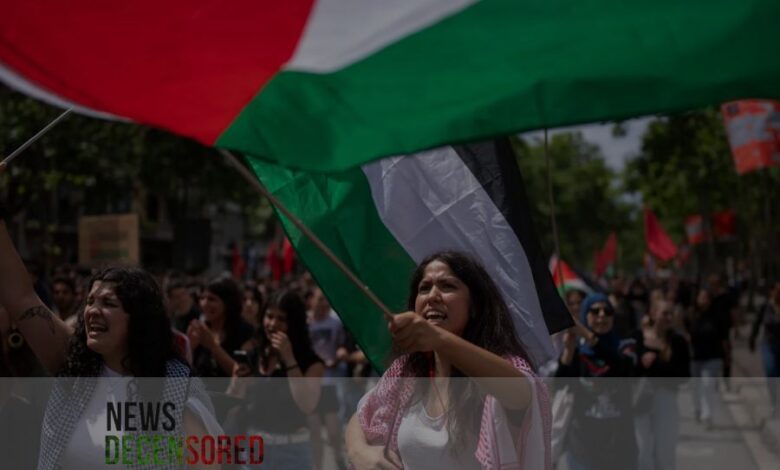Palestinians commemorate the 76th anniversary of the Nakba while experiencing a broader catastrophe in Gaza

The “Nakba” or “catastrophe” on Wednesday, the Palestinians commemorate the seventy-sixth (76th) anniversary, which means their mass displacement from their land and the establishment of Israel. This event lies at the heart of their national struggle. Still, the catastrophe that is now unfolding in Gaza seems even more significant.
Following the establishment of Israel in 1948, about 700,000 Palestinians were expelled or displaced from their homes under the influence of intimidation and the commission of massacres, such as the Deir Yassin massacre, a month later the Tantura massacre, and then Al-Dawayma in 1948, which greatly affected the people’s souls and paved the way for their displacement.
After the Palestinians left their homes, Israel refused to allow them to return because that would have resulted in a Palestinian majority within the borders of the Hebrew state. Instead, they became a seemingly permanent refugee community that now numbers about 6 million people, most of whom live in poor refugee camps. In Lebanon, Syria, Jordan and the Israeli-occupied West Bank. In the Gaza Strip, refugees and their descendants comprise about 3/4 of the population.
Israel’s rejection of the Palestinians’ right of return has been a core grievance in the Israeli-Palestinian conflict and one of the thorniest issues in peace talks that last collapsed 15 years ago.
12 o’clock
12 o’clock
See more >
Forcible displacement:
Now, many Palestinians fear that their painful history will be repeated on an even more catastrophic scale. Throughout the Gaza Strip, Palestinians in recent days have boarded cars and donkey carts or gone on foot into already overcrowded camps as Israel expands its offensive.
From several rounds of forced displacement, the images are almost identical to black-and-white photographs from 1948.
Mustafa Al-Jazzar, now 81, still remembers his family’s month-long journey from their village in what is now central Israel to the southern city of Rafah when he was five years old. At one point, the family members were bombed from the air, and at another point, they dug holes under a tree to sleep in for warmth.
Hope to return and hope to stay alive:
Al-Jazzar, now a great-grandfather, was forced to flee again last week, this time to a tent in the Mawasi area, a barren area along the coast where some 450,000 Palestinians live in a squalid camp. He says conditions are worse than they were in 2017—1948 when the United Nations Agency for Palestinian Refugees regularly provided food and other necessities. My hope in 1948 was to return, but today, I hope to survive,” the elderly sheik says.
The Israeli bombing in Gaza, since the Palestinian factions carried out the “Al-Aqsa Flood” operation in the Gaza envelope on October 7, has killed more than 35,000 Palestinians, according to health officials in the Strip, while the factions’ attack that day led to the death of about 1,200 Israelis.
Then, Israeli bombing forced about 1.7 million Palestinians – nearly three-quarters of the Strip’s population – to flee their homes, more than double the number who fled before and during the 1948 war.
Israel has closed its borders, and Egypt has only allowed a small number of Palestinians to leave through a now-closed crossing, partly because it fears a mass influx of Palestinians, another potential long-term refugee crisis, and the liquidation of the Palestinian cause.
The international community strongly opposes any forced mass displacement of Palestinians from Gaza – an idea embraced by far-right members of the Israeli government who claim it is a “voluntary migration.”
Israel has long called for the absorption of the 1948 refugees into host countries, claiming that calls for their return are unrealistic and would jeopardise its existence as a Jewish state. It refers to the hundreds of thousands of Jews who came to Israel from Arab countries during the regional unrest that followed its establishment, despite Many of them being Zionists who immigrated voluntarily.




